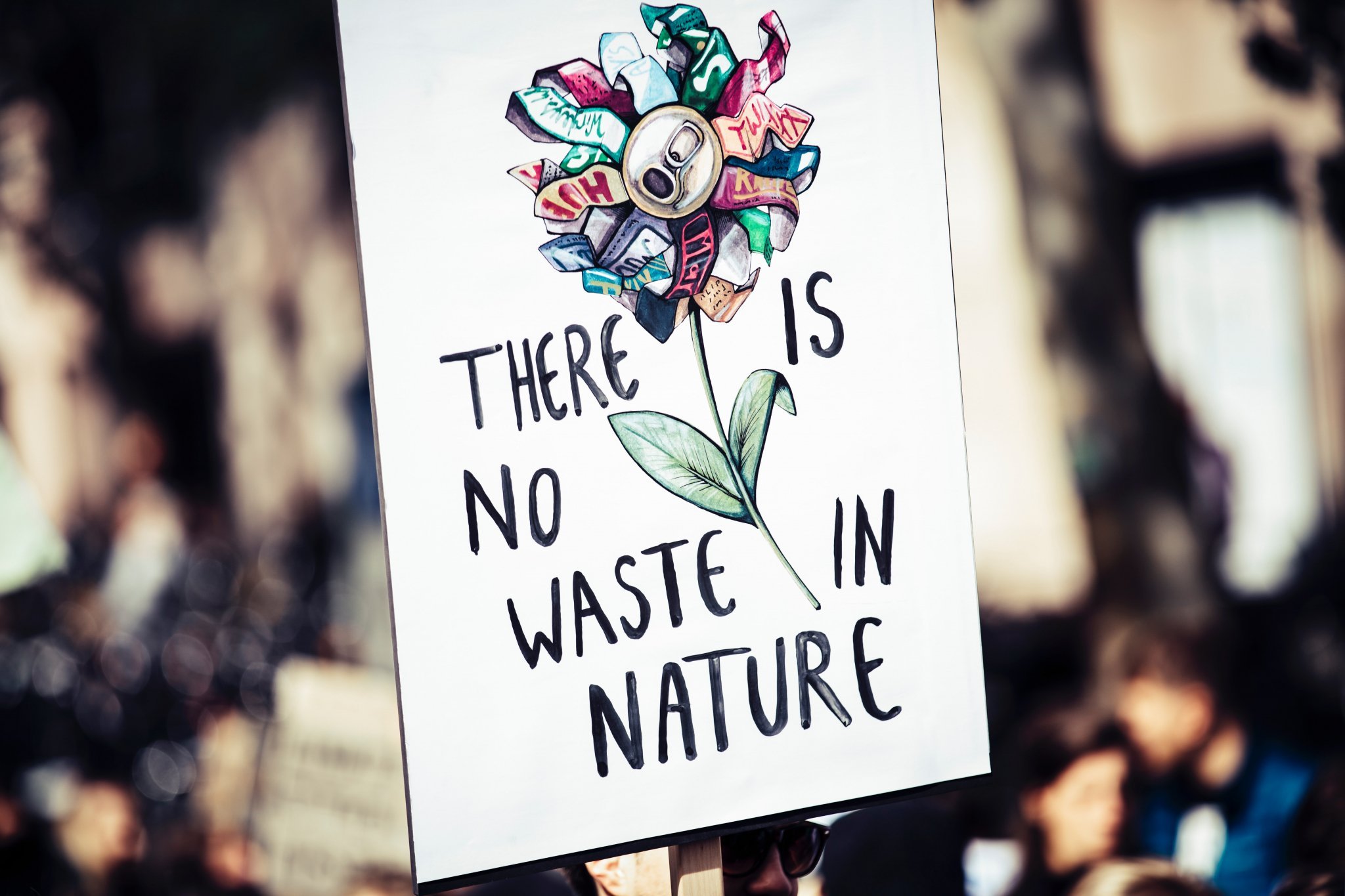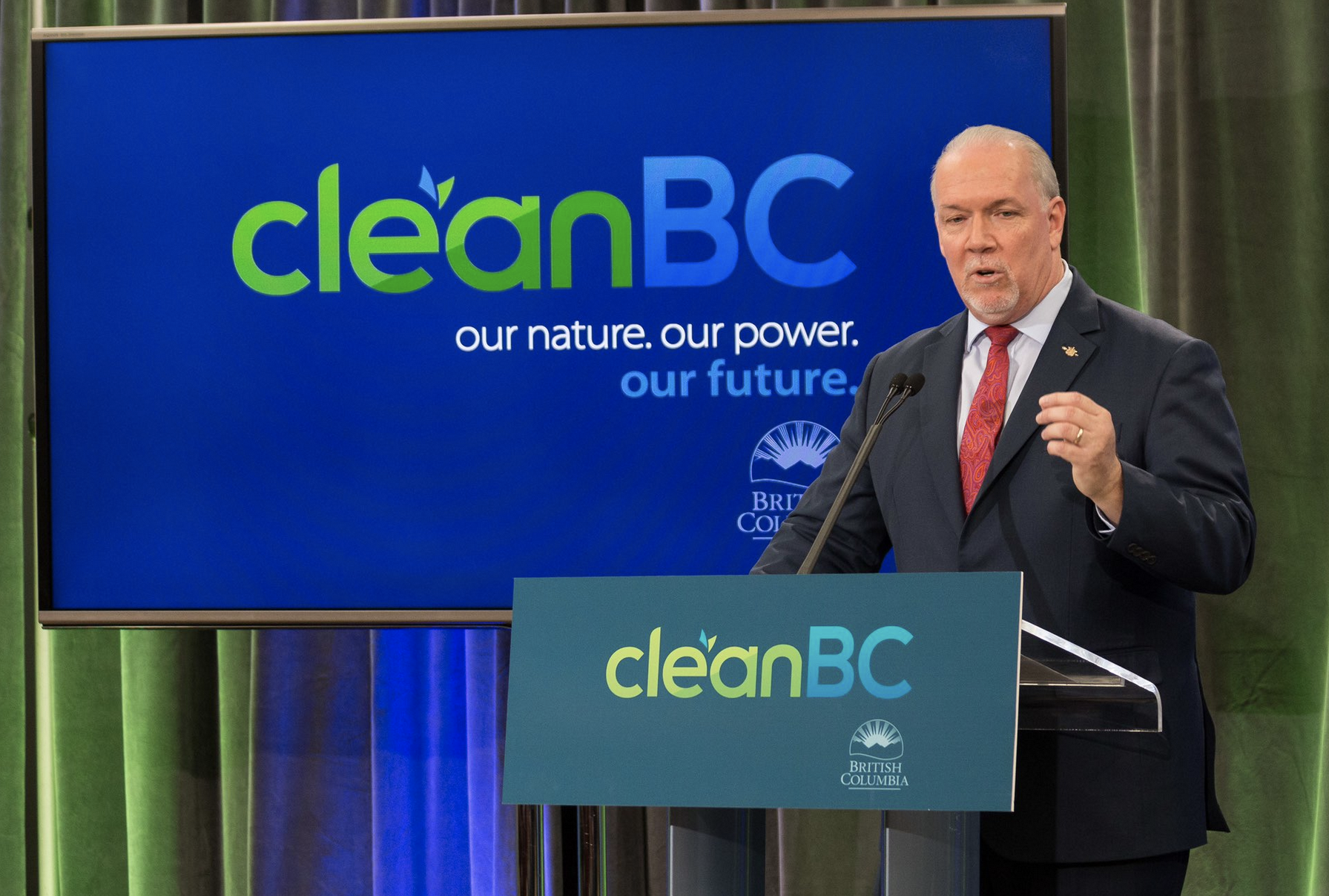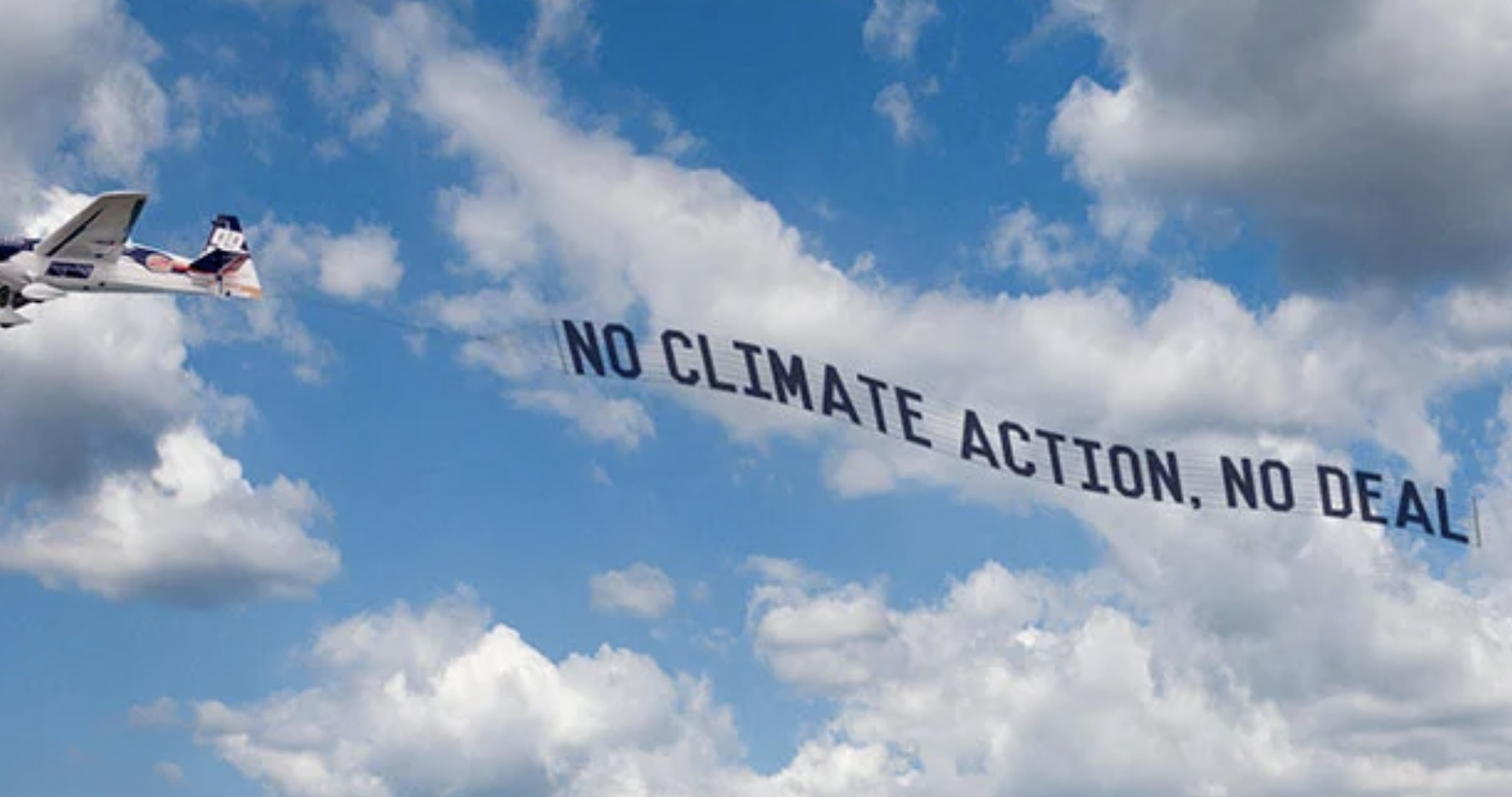Climate Emergency Unit News and Blog
Get our blogs sent straight to your inbox by signing up for our newsletter.
Liberal-NDP deal no match for the climate emergency
by Seth Klein
The federal Liberals and NDP have entered into a “supply-and-confidence agreement” (SACA). I am generally a fan of such agreements. Sadly, however, I am much less enthused about the contents of the deal just cemented. As I wrote after the election, “the NDP needs to send a clear message to the Trudeau government — no climate emergency plan, no deal.” Instead, what the NDP managed to secure in this agreement feels weak and vague, especially with respect to the climate crisis. Modelling more cross-party collaboration and co-operation in government is worthy. But we face a climate emergency. And this agreement does not spell out an emergency plan.
Will Canada’s updated federal climate plan be enough to avoid climate catastrophe?
By Erin Blondeau
On the heels of the latest IPCC report, Canada is releasing its latest federal climate plan, officially known as the 2030 Emissions Reduction Plan (ERP). But will it meet the needs of the climate emergency? We can use our emergency markers framework to evaluate it.
Canada’s climate policy doesn't change without a cultural transformation
By Anthony Garoufalis-Auger
In December, Canadian Heritage Minister Pablo Rodriguez announced he will be holding a national summit on the recovery of the arts and culture sector. Among the topics of discussion will be the critical role of the cultural sector in the fight against climate change.
Multiple initiatives are now emerging around creating a larger role for arts and cultural institutions that both implement greening practices and imagine how culture can help shape the ecological values and norms needed to shift us from hyper-consumerism to environmental stewardship.
The urgent need to cap oil and gas sector emissions:Seth Klein’s testimony to the House of Commons Standing Committee on Natural Resources
On Feb. 14, Seth was invited to testify before the House of Commons Standing Committee on Natural Resources as part of the committee’s study of a federal greenhouse gas (GHG) emissions cap for the oil and gas sector. We pride ourselves on being climate leaders, yet we have been highly resistant to tackling our role as global producers of fossil fuels. it is therefore very welcome that the governing party has finally recognized the need for a declining emissions cap on the oil and gas sector. But, in the absence of strong action from the federal government, the trends show little sign of abating. Here’s what Seth shared with the committee…
FortisBC doubles down on nefarious efforts to block electrification
By Seth Klein
Across North America, jurisdictions are starting to ban gas from new buildings as part of plans to tackle the climate emergency. And that has fossil fuel gas companies very nervous and pushing back. FortisBC, the primary provider of “natural” gas to British Columbia homes and businesses, sensing an impending existential threat to their business plan has a counter-plan. The company’s latest mischief-making? A proposal to the BC Utilities Commission to supply all new homes with 100 per cent “renewable gas” — at no extra cost to these future customers. Wow, sounds fantastic. Well, not so fast. The company’s real end-game here — to get around the new climate regulations of cities like Vancouver and forestall households swapping to electric heat pumps for the sake of the climate.
The throne speech Premier John Horgan means to give
By Seth Klein
In this piece, Seth once again has some fun writing an imaginary throne speech, this time for the BC government. Here is what a BC throne speech might sound like, if it were to honour Indigenous title and rights, and recognize that we live at a time of multiple interlocking crises — the climate emergency, the pandemic, the housing crisis, a poisonous drug supply crisis, and growing inequality — and resolve to govern accordingly.
Our politics must not be about the art of the narrowly possible, but rather, about making possible what yesterday seemed unimaginable. There is only one way to meet such interlocking crises: Head on. Together. With ambition and defiance, creativity and solidarity. Enjoy.
Getting Off Gas: A How-To Guide to Get Fossil Fuels Out of Your Home
By Seth Klein
As we seek to confront the climate emergency, retrofitting existing homes and buildings figures centrally in a robust plan. After a process that took about a year, my home is now off fossil fuels. It wasn’t simple or cheap. But it can be done. And in this piece, I share the steps of how my family did it. Some of what we did is specific to B.C., where we live, but much is applicable anywhere. In telling this tale, I’m not trying to virtue signal. Rather, I just want to offer some guidance because people want to know. One of the barriers to climate action is that many of us find it hard to imagine how our homes operate without fossil fuels. So here I offer you a picture of what that can look like.
The battle for our lives: the terrain is shifting on the climate emergency
by Seth Klein
When it comes to the climate emergency, this is the period of our awkward interregnum. Our political leaders are, for the most part, still in denial. Not about the reality of human-induced climate change, but about what confronting it actually requires. Emergencies and disasters can bring out the worst in us. But often they bring out our best. Both have been on display this week in my province of British Columbia. We have seen some anti-social behaviour. But we have also witnessed some remarkable displays of mutual aid and solidarity. As distressing and disruptive as this period may be, make no mistake — the terrain is shifting.
The climate throne speech Prime Minister Trudeau means to give
[Note to readers: The following is a work of fiction.]
Honourable Senators, Members of the House of Commons, Ladies and Gentlemen:
Just over a week ago, the world gathered in Glasgow, Scotland, for the 26th United Nations conference on climate change. Progress was made. The world is starting to mobilize. National commitments, including Canada’s, to reduce greenhouse gases got us closer to keeping global temperature rise to a safe level.
But not close enough. Not by a long shot. More and faster action is needed.
This past summer has been a wake-up call for us all.
From leader to follower: B.C.’s updated climate plan – its “CleanBC Roadmap to 2030” – is not an emergency plan
by Seth Klein
On Monday October 25, the British Columbia government released the long-awaited update to its provincial climate plan, dubbed its “CleanBC Roadmap to 2030.” it is not an emergency plan. The B.C. government is very keen about its reputation as a climate leader, and repeatedly claims that its plan is “continent-leading.” A reasonable case in support of this proposition might have been possible three years ago. But it is not true any longer.
Message to our new Parliament: Time for a real climate emergency plan
By Seth Klein
Just a few months ago, it seemed like climate would struggle to make an appearance in this election, pushed aside by the pressing realities of the COVID crisis. But in a positive turn of events this election, we saw parties competing with each other about which had the stronger and most convincing climate plan. Canadians want to see bold action on climate. But once again, support for that action has been split across numerous parties. Hence this minority outcome. Now we need them to co-operate and get it done.
Canada needs a national Youth Climate Corps – we’ve proven it works
Guest post by Ben Simoni and Melissa Lavery
Seth Klein has written a “case for the Youth Climate Corps in Canada.” South of the border, U.S. President Biden and other elected officials are pushing for the creation of a “Civilian Climate Corps” with billions of dollars in potential start-up funding. Whether it's called the YCC, the CCC, or something else, this is the big, interdisciplinary solution we need. Young people need opportunities and Canada needs young people’s energy to meet the climate change challenge. In southeast B.C., we’ve shown it works through a homegrown proof-of-concept. Now, we need the federal government – whatever political party takes the reins -- to scale up.
Why tackling inequality and the climate crisis must go hand-in-hand
Today, Sept. 17, marks the 10th anniversary of Occupy Wall Street (I know, I was surprised, too). On this day in 2011, a mass protest began in New York City’s Zuccotti Park, located in the heart of the financial district. It lasted weeks and spread to cities around the world, including many in Canada.
And while the protests themselves eventually fizzled, Occupy profoundly shifted the zeitgeist. In the wake of the 2008 financial crisis, these protests elevated the issue of inequality to an unprecedented degree, and exploded the concept of “the one per cent versus the 99 per cent” into the public imagination.
A different take on rating the party climate platforms(and why you should take Mark Jaccard’s ratings with a hunk of salt)
by Seth Klein
SFU economist Mark Jaccard, in his recent assessment of federal party climate platforms published in Policy Options, finds the Liberals’ climate plan the “most sincere” of those on offer, followed by the Conservatives, then the Greens, and lastly, the NDP. Jaccard’s piece has been irresistible candy for the political punditry, and has been quickly turned into Liberal campaign talking points. But it’s fundamentally flawed. The main problem with Jaccard’s ratings is he’s measuring the wrong thing. His ratings are primarily derived by determining whether the policies proposed by each party would credibly meet that party’s own stated GHG reduction target. But by this measure, the more ambitious the target, the less likely Jaccard is to find your plan credible. It’s like an Olympic diver getting the top score because she or he successfully nails the least complicated dive.
In a climate emergency election, find your climate justice champion
by Seth Klein
The path to victory with a real climate emergency and a just transition plan is narrow. To win one, two elements are needed: First, we desperately need to hold the government to a minority. Second, we need to elect a huge contingent of true climate justice champions — people who genuinely get the emergency and will insist on bold action. With the country on fire, we need to elect political firefighters. We need to bolster the ranks of the climate squad across a number of parties. So, find your climate champion! If you don’t think you have one in your riding or, more likely, you don’t think they have a realistic chance of winning in your riding, then find one in a neighbouring winnable riding, and do everything you can to get them elected — donate, volunteer, organize, and vote.
Time to ban fossil fuel advertising
By Seth Klein
We no longer allow cigarette and tobacco ads on TV, radio or in movie theatres, given the known harm these products cause. Why then do we permit ads for the fossil fuel products we know to be a civilizational threat? These ads send a message, even if we don’t buy the specific product they are selling. They normalize what must now be wound down. Emergencies need to look, sound and feel like emergencies. But ubiquitous advertising of fossil fuel vehicles, gas stations, gas suppliers and appliances, air travel and the ongoing sponsorship of arts and sports events by fossil fuel companies all sends a confusing message — are we facing a climate emergency or aren’t we?
B.C. is in a state of climate emergency without an emergency plan: As the crisis manifests, it’s time the provincial government gave its climate plan a reboot
By Seth Klein
British Columbia is having its summer of reckoning with the climate emergency. With a jolt to our collective consciousness, most of us now understand the emergency is well and truly upon us. But we meet this moment unprepared, without a genuine and robust climate emergency plan, and with a political leadership that seems unwilling or unable to “get it” on climate. CleanBC, the province’s official climate plan, is frequently touted as the strongest such plan in Canada. And relatively speaking, it likely is. But that’s not saying much. What the plan is decidedly not is an actual climate emergency plan. In this piece, I consider B.C.’s current climate plan against what I call the “Four Markers of Emergency Mode.”
Can Jonathan Wilkinson be our C.D. Howe?What it means to occupy a pivotal cabinet post in a time of emergency
by Seth Klein
When it came time for the Canadian government to meet the emergency of the Second World War, one man (they were all men) within Prime Minister Mackenzie King’s cabinet stood out – C.D. Howe. Today, as we struggle to meet the climate emergency, another transformation of our economy is called for. And that has me wondering: Can Jonathan Wilkinson, our federal minister of environment and climate change, the person charged with overseeing the decarbonization of Canada’s economy and society in the face of a civilizational threat, be our C.D. Howe?


















